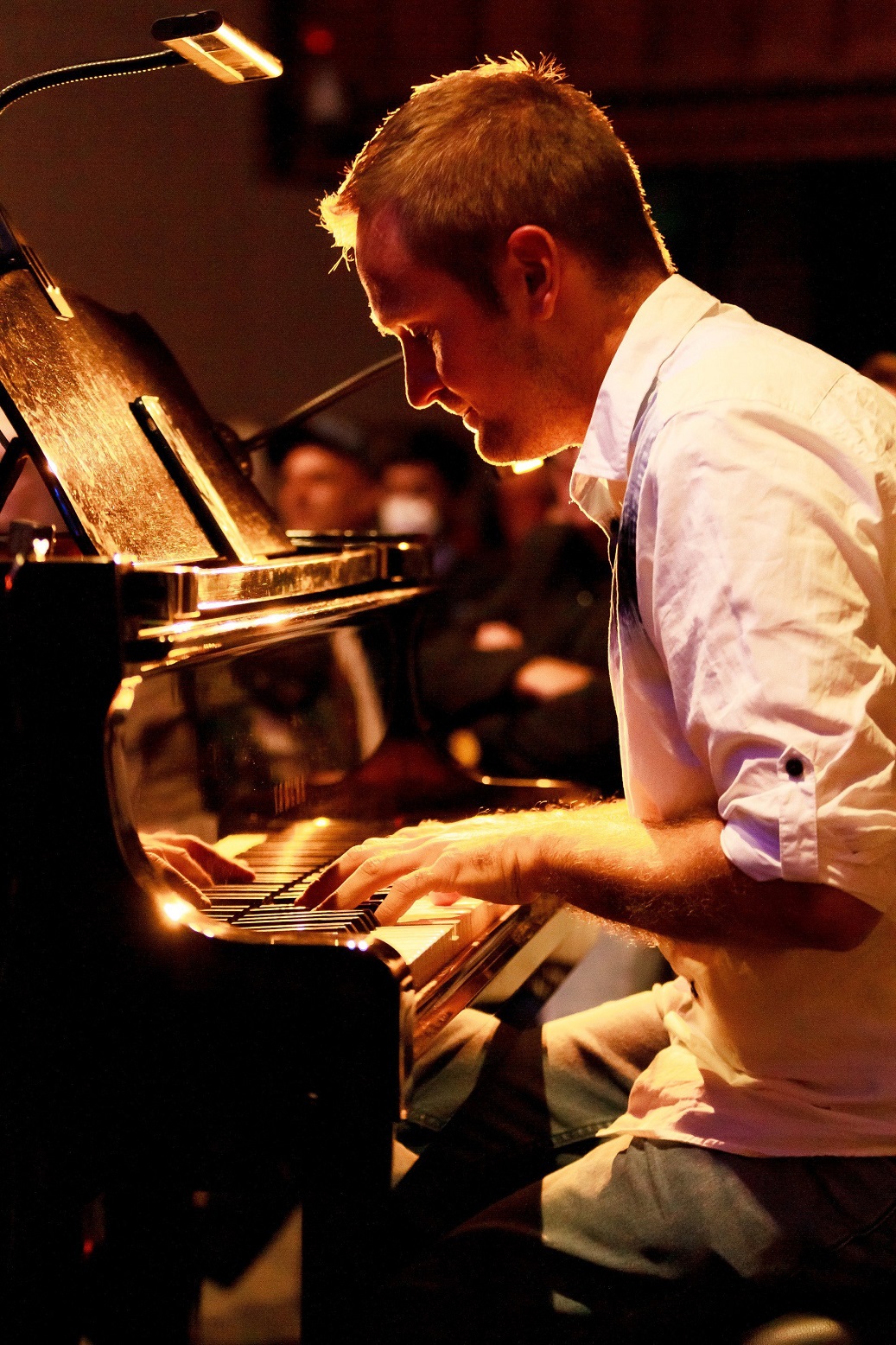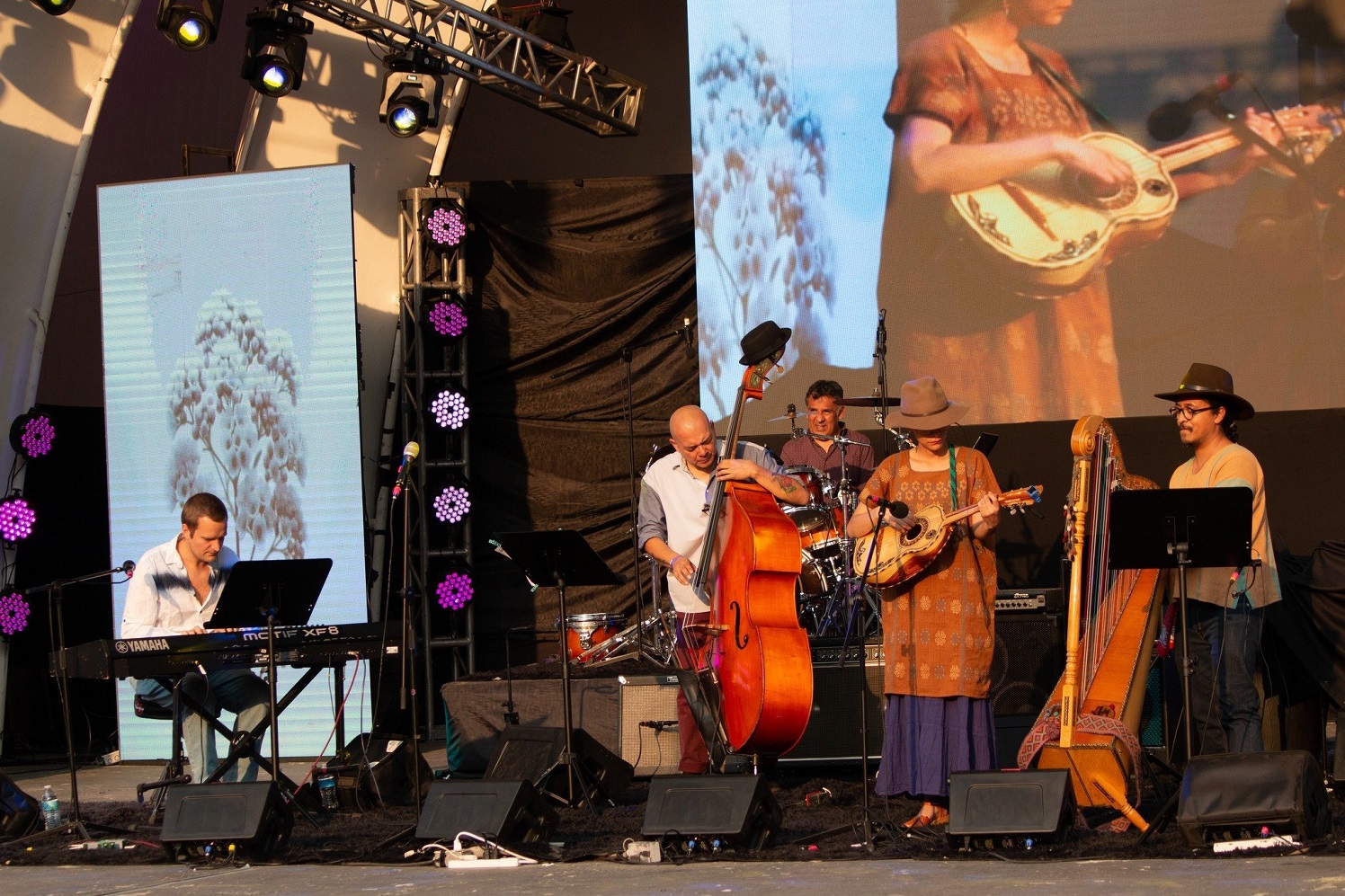
A growing friendship with a small dog he encountered walking a path on a Greek island changed many things for musician Dan Costa.
"The dog would come, would follow me everywhere."
Becoming aware the animal was not being treated well and not being able to do anything about it opened his eyes to issues about animal welfare.
"This event really was quite important because living on this island, my experience observing how other animals live really took me on a really special path in life."
He saw the island’s sheep hobbled so they could not escape and the hens being picked up for slaughter, evoking for him images of the holocaust.
"Maybe for you it’s a bit far-fetched, but I think all animals deserve respect. Here, this was very similar.
"It’s just that they were hens instead of people. And it was really a shocking thing."
Costa became a vegetarian and his repeated encounters with the dog inspired him to compose a song called Paw Prints, which is about to become a theme tune for an Australian animal welfare organisation.
"It’s not like I wrote this tune because I wanted to raise awareness for animal rights.
"This happened later. It was a natural, very honest, sincere tune, which was born of this friendship with the dog. And so later, this music can be used as a tool to raise awareness."
This is just one of the issues Costa (35), who is known for his Latin-influenced jazz piano style, believes music can help raise awareness of. Another is peace.
He wrote Iremia, which means peace in Greek, while he was living on Paros in the Cyclades Islands and recorded it with Randy Brecker.
They re-released it when the war broke out in the Ukraine.
"My mission as an artist is not just doing music, but it’s also raising awareness of certain things."
Greece is just one of nine countries Costa has lived in, the most recent being Georgia, where he has spent several months researching local traditions, culture and seeing how the country managed to keep its own identity despite the Soviet Union’s presence.
"I’m a big fan of history, of course, and I have other degrees, not just in the field of music."
A language teacher, he has also completed his master’s in history and is now doing his PhD focusing on the spice trade, in particular cinnamon, a "spice I like a lot".
Researching national data bases from more than 10 countries, requiring the use of six languages, he is tracing how the quest for cinnamon developed connections between colonies and how it affected the relationships between them in the 18th and 19th centuries.
"History, that’s also an important part of my travels.
"I like to visit museums, archaeological sites, and just understand the world we live in and how it reflects what we’ve been through in the past."
Costa’s own history is reflected in his music.
The child of Italian and Portuguese parents, he spent the first eight years of his life in London listening to music from both cultures and speaking both languages.
The family then moved to the southeast of France.
"When I was 11, I was really into certain Italian singers.
"And I was wondering what made their songs so interesting, you know, harmonically, melodically. And so I really wanted to know how these tunes were written. "
The Italian side of the family came from Naples where there was a strong musical tradition of "tarantella" which led to many famous opera songs.
"My grandfather would sometimes play some tunes on the keyboard, although he wasn’t a professional player.
"But I was really intrigued. And so that’s how I started to take piano lessons."
He initially studied classical piano for six years at the Academie de Musique Rainier III in Monaco but discovered he was good at sight reading and enjoyed playing scores differently each time, much to the horror of his teacher.
"I was like, ‘but it’s the same melody’. I’d like to change it".
As a result his teacher advised him to try jazz if he loved improvising so much.
So he gradually began to move from classical to jazz.

"So this kind of echoed my childhood where I listened to lots of bossa nova tunes."
During those days in Monaco he also used to sing in the prince’s choir and attempted to learn the guitar but felt it was not for him physically.
He moved to Portugal to study jazz piano at Escola Superior de Musica e Artes do Espectaculo and "discover" his roots.
"So I often went to Fado sessions and I would sing.
"Singing was an important part of my background.
"But then I focused more on piano because I really wanted to focus on instrumental music."
He enjoyed the piano’s different possibilities in terms of arrangement and composition and discovered he liked to diversify on the piano by playing different styles rather than different instruments.
"And I like the fact that the piano is not just harmonic and melodic as we often think of it as, but at the end of the day it’s a percussive instrument.
"And when you play these Brazilian rhythms, when you include all the percussive nature of a samba group, for example, which involves so many different percussive instruments ... And then when jazz pianists bring this to the piano, it’s just fascinating."
His interest in Brazilian music grew out of his family heritage and listening to the country’s music at home, not just bossa novas but samba and classical composers.
After studying for a year at Sir Paul McCartney’s Liverpool Institute for Performing Arts in the UK he got a grant to study Brazilian music at the Universidade Estadual de Campinas in São Paulo, Brazil.
"I focused not just on Brazilian popular music, but also these great Brazilian composers like [Heitor] Villa-Lobos, [Camargo] Guarnieri, Lorenzo Fernandez, all of these composers who wanted to blend the European tradition with these Brazilian rhythms that have had a strong African element. It was magical."
He returned to Portugal to finish his jazz piano degree and then began work as a language teacher. But music was still his focus and he got together a team of people to produce his first album recording Suite Tres Rios in Rio de Janeiro, Brazil, with musicians such as Jaques Morelenbaum, Ricardo Silveira, Teco Cardoso, Rafael Barata, Marcos Suzano and Leila Pinheiro and has gone on to record several more albums.
It was about then he moved to Greece but when Covid hit, he decided to move to Croatia where he has lived since.
During Covid he did some online study at Berklee College of Music in the United States about the business of the music industry as he is his own agent and manager.
"This was very useful to understand that I was already on the right track, and then gave me some more confidence to do more things."
Over his career he has travelled to about 80 countries on all continents except Antarctica.
"I think music really takes you to different places.
"But there’s still a lot to do, a lot to learn, people to meet. In Africa, for example, I’ve only performed in Egypt. There’s lots of other places to perform in."
He has already ticked New Zealand off the list, coming here in 2022 after the Covid pandemic as part of a tour of Asia and the Pacific performing and taking masterclasses at Victoria University. He enjoyed it so much he wanted to come back, this time to perform as part of a jazz quartet featuring Dunedin’s Bill Martin, (tenor Saxophone) and Carl Woodward (drums) and Wellington’s Umar Zakaria (Double Bass) and in regional centres in conjunction with Chamber Music New Zealand.
Costa finds travelling and interacting with different cultures stimulating. Recently, he was in Kazakhstan on holiday and ended up organising an impromptu concert with people he had just met. At the end, he collaborated with a local performer who plays the dombra, which is the national instrument of Kazakhstan.
"I also did this when I played in Lebanon a few years ago.
"There was a Syrian singer and we did a whole concert which was a kind of fusion of my Brazilian jazz with her melismatic Syrian elements.
"And the same thing in India.
"When I toured India a few years ago, I did one concert with Sarod. Sarod is an Indian instrument, a string instrument, with a really beautiful sound, and we did a fusion with the piano. So these are things that I haven’t recorded yet, but it definitely reflects this travel and this idea of uniting cultures through music."
One of his favourite performances was during a festival in Mexico where the audience sang him Happy Birthday and he performed with two performers of indigenous Mexican music.
"This was very important also, you know, in terms of history and human rights.
"So remembering and trying to revive these traditions is important, in my opinion."
His drive to travel comes from his mixed cultural roots "born a child of parents of different countries, born in another country, then grew up later in another country".
"So I think it’s just an extension of that. Of course, I could have just stuck to my initial three countries, but I think it’s nice to always be open-minded and to learn, because at the end there’s this whole lifelong learning thing, which I think is also very healthy."
TO SEE:
Dan Costa Quartet: Hanover Hall, Dunedin Nov 1, 7.30pm; Cromwell Coronation Hall, Bannockburn, November 2, 7:30pm.












